Therapist Victoria Gutbrod from Renew Counseling Ministries and her husband Matt talked to us about faith and the latest psychiatric treatments on their podcast, When Gathering Light. Victoria is a leading expert on trauma in the Akron area, and she previously appeared on the Ascend Health Show to talk about brain adaptation in PTSD.
We joked that a conversation about Jesus and psychedelics was bound to offend almost everyone. Ignoring the spiritual aspects of psychology narrows the specialty into impersonal, cookie-cutter approaches that always fail those with treatment resistant conditions. Ketamine and similar substances don’t easily fit into a sterile, medical pattern of care either. But, how should we talk about complex subjects like mental health? The old pharmaceutical model of, “You just have a serotonin deficiency” has been disproven, but many people suffer church hurt. They feel controlled or disempowered with phrases like, “Well, you should just wait for healing.”
The language of physical health demystifies anxiety and depression. It’s acceptable to talk about a flareup of knee pain or fibromyalgia, so why not anxiety and depression? It’ll remove the hopelessness–by definition flareups are temporary. It removes the mystery, which allows us to work as active participants rather than saying, “I don’t know what my brain is doing, so I’ll just pray about it.” Mental health can seem like it’s own religion sometimes, with uplifting memes, overused sayings, and a whole vocabulary the outside world doesn’t understand. By tuning into what we’re actually feeling, we’re better able to articulate what we need and discover resources where we can get it.
Both ketamine and Transcranial Magnetic Stimulation (TMS) can assist in this process by lighting up dormant areas of the brain. It’s an easy analogy–we can see more clearly in the light. When we add a supportive community, the light helps keep us accountable. We all need friends and family (and perhaps therapists) to call out blind spots we might be missing. Whether antidepressants, psychotherapy, or more novel approaches to mental health, an important question is, “Will this give me more clarity?” If we can avoid using primitive fight or flight parts of our brains to make decisions, we’re more likely to accurately keep ourselves accountable and judge the usefulness of our community. An added benefit of avoiding survival mode is not having to abandon anything that’s not immediately useful. Instead of clinging to existence while avoiding triggers, we have space for tolerance. Perhaps that’s an interesting take to leave a conversation about faith and brain-changing therapies. It’s not necessarily a higher plane of consciousness we seek, to borrow a phrase from the mental health religion. But, on our journeys, the goal is to be less controlled by instincts and reflexes as we learn to choose better habits leading to better outcomes.




















